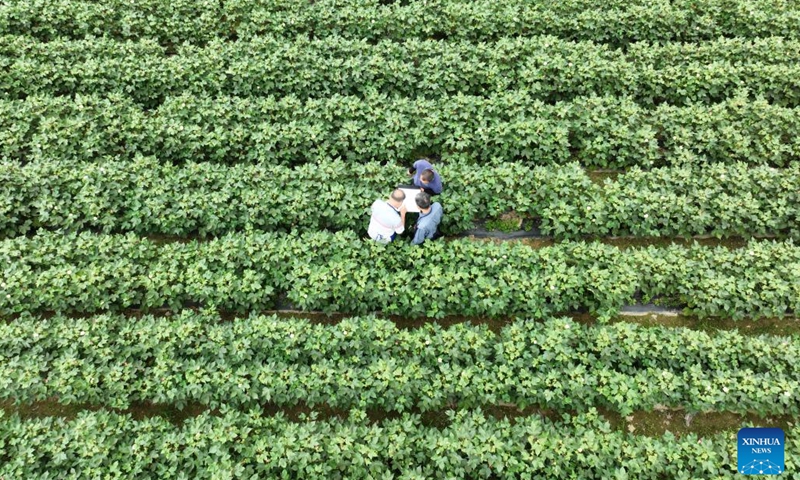China's seed breeding industry thrives, as nation seeks to bolster food security

Seed breeding at the Nanfan breeding base, which has been dubbed the "Silicon Valley" of China's seed industry, continues to thrive, with an output value exceeding 10 billion yuan ($1.39 billion) in 2023, a senior provincial official said on Sunday. The base, in South China's Hainan Province, plays a significant role in China's efforts to bolster food security.
"Seeds are the 'chips' of agriculture, and to build Nanfan into the country's largest experimental zone for agricultural science and technology is essential for seed production and food security," Liu Xiaoming, governor of Hainan Province, said at the opening ceremony of the 2024 China Seed Congress in Sanya, Hainan.
At the conference, Liu detailed some remarkable achievements during the past few years, including the construction of major research platforms, the integration of resources for seed enterprises, and further development of the national seed breeding base.
Experts said the conference showcased China's achievements and innovations in the seed industry. It also comes amid the central government's increasing efforts to ensure food security, which have highlighted the importance of support for sci-tech innovation in the agricultural sector, as well as revitalization of the seed industry.
China is the world's second-largest seed market, with a market value of 120 billion yuan ($16.3 billion), according to a 2021 report published by the agricultural ministry.
The seed industry is a national resource that has been deemed strategic. Without an independent seed industry, which is key to increasing food production and ensuring food security, there is no strong agriculture, Chinese agricultural experts said.
However, the foundation of seed industry development is still not solid enough, Li Guoxiang, a research fellow at the Rural Development Institute of the Chinese Academy of Social Sciences, told the Global Times on Monday.
"The most fundamental way to nurture the indigenous seed industry is to create a market environment that respects innovation and protects the intellectual property rights of the seed enterprises," Li noted. It would also be good to encourage companies to invest more in the research and development of breeding technology, so as to cultivate new quality productive forces in the seed industry.
This would form a virtuous cycle allowing the sustainable development of seed enterprises, Li said.
At the conference, Tao Kaiyuan, vice president of the Supreme People's Court, said China has continued to strengthen the protection of intellectual property rights involving seeds, with stricter penalties for violators.
According to Tao, the court has dealt with a total of 619 cases involving infringement of new plant variety rights in 2023, up nearly 40 percent compared to 2022.
China has attached great importance to agriculture and the seed industry. In this year's Government Work Report the central government said it would redouble efforts to invigorate the seed industry and make breakthroughs in key agricultural technologies.
Li pointed out the urgent need to enhance the competitiveness of China's soybean industry and advance the self-reliance of the seed industry in science and technology. "China has advantages in breeding technology for rice, wheat, and some unique varieties, but the yield level of soybean varieties still needs to be further improved," Li said, noting that more efforts are still needed to boost innovation in cutting-edge breeding technologies.
To realize an upswing in the development of the seed industry, Liu said Hainan will ramp up efforts in seed breeding, focusing on such aspects as seed sources, the seed industry, and germplasm resources.